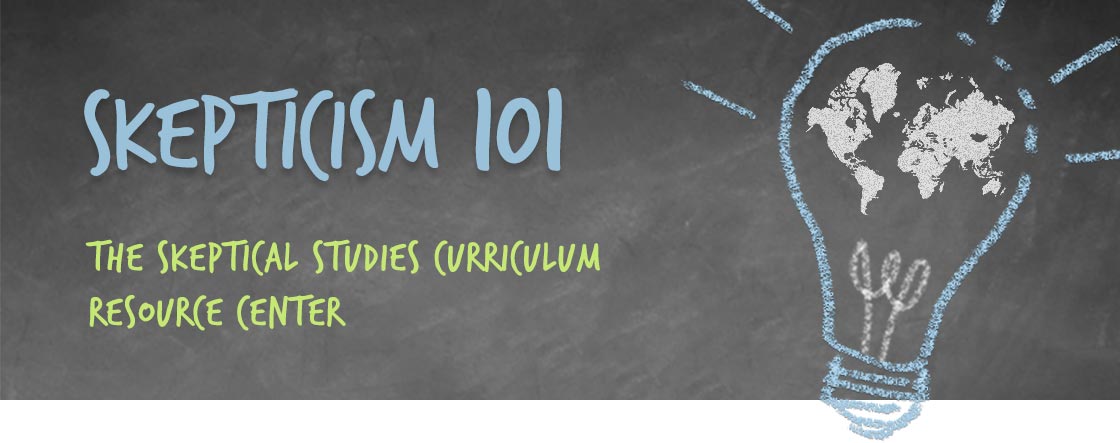In this introductory lecture to the study of skepticism, Dr. Shermer defines skepticism and what it means to be a skeptic, employing numerous examples from the pages of Skeptic magazine to illustrate what science is and how it works, how to think like a scientist, how to think about weird things, what constitutes an extraordinary claim and why we require extraordinary evidence for it, and how to test claims of the paranormal.
DOWNLOAD THIS RESOURCE
(259 MB Powerpoint Presentation)
Have you ever felt like you knew what someone was going to say before they said it? Or that you had a feeling that the phone was going to ring and it did? Have you had a “psychic” tell you something about yourself that s/he couldn’t know without reading your mind? Have you ever thought you had a “sixth sense”? What explains this? Many have experienced one or more of these events, described them as extraordinary, and attributed them to extrasensory perception (ESP). In this exercise you can take your students through the process of finding out (scientifically) whether or not they, or someone they know, has ESP. Designed for grades 9–12. This in-class exercise was created by the James Randi Educational Foundation (JREF) and it answers questions such as: (1) What is ESP? (2) How I you test it? and (3) What is the history of this research?
DOWNLOAD THIS RESOURCE
(643 kb PDF)
This course was taught at Gettysburg College during the fall 2011 semester.
Excerpt from Syllabus
This course will explore a number of controversial theories in a variety of different, and hopefully fun, ways. It will be somewhat different than most science courses students may have taken up until this point: it will be far more interactive and experimental. Students won’t have any tests; they will have papers, oral presentations, posters, speeches and other activities instead, and run large portions of the course themselves. Students will also have to be a bit more creative than they may be used to in class. They may even find themselves singing through part of it!
By the end of the course, students should have an appreciation for how science is used to sort truth from fiction and what it takes to settle a debate in science. They will also better understand the reason why correct theories may be rejected for decades before being accepted, while others have been proved as false as possible within the realm of science.
Learning goals
- Understand the scientific process and how theories are developed and tested over time.
- Understand how scientific discoveries can affect culture and society, and how society can react to the presentation of controversial scientific ideas.
- Understand how ideas are presented within academia, how peer review works and how to effectively use speeches, written papers, academic posters, Powerpoint and other visual aids to present an argument.
- Understand research tools, databases and other academic resources.
- Be better able to uncover deception in an argument ranging from shading the truth to outright fabrication.
- Understand how a scientific theory can be used politically to justify multiple points of view.
- Be better able to evaluate popular magazine, newspaper and internet articles discussing controversial ideas.
DOWNLOAD THIS RESOURCE
(130 kb PDF)









